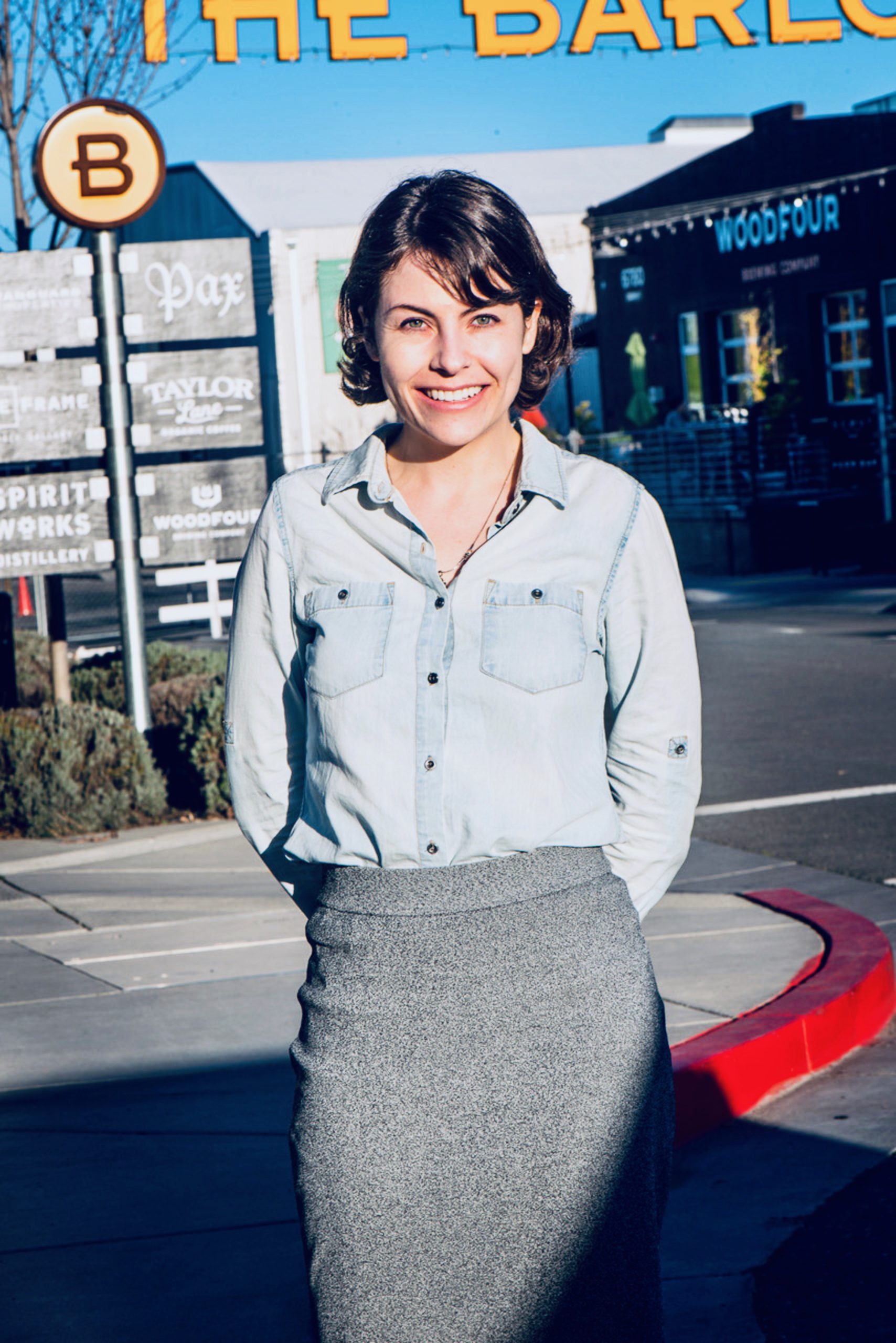(Photo above courtesy of Ellie Austin)
Ellie Austin’s Buddhability enabled her to return to her hometown and heal from her past.
When I was 12, a boy at school asked me to go out with him. I turned him down and figured that was the end of it. Unfortunately, he couldn’t take the rejection and began harassing me. This continued for years.
By our sophomore year of high school, he started threatening to kill me. Using his influence as a popular football player, he convinced my friends to exclude me from our social circle. Every Friday night, he and some of my old friends would egg my house.
My parents filed a complaint with the school district, but that only made things worse. I was blamed for getting him and his friends in trouble, and they started physically assaulting me, pushing me into walls and lockers.
Because the school administration was unwilling to protect me, I went into independent study and spent the rest of high school alone. I was deeply ashamed that I had not stood up for myself and felt I was to blame for what had happened to me.
I was diagnosed with post-traumatic stress disorder, depression and anxiety, which sent me into a deeper abyss of alcohol abuse and self-harm.
I glimpsed the possibility of a different life when, a few years later, my mom’s friend introduced me to Nichiren Buddhism.
I was 19 years old and desperate to change my life, so I began chanting Nam-myoho-renge-kyo and received the Gohonzon in 2006.
Unfortunately, I let a boyfriend discourage me from practicing and left SGI. I thought that a successful career was all I needed to forget about my painful past. So, I spent the next few years numbing myself with alcohol and white knuckling it, eventually earning a law degree on a full scholarship and passing the bar exam.
After law school and a devastating breakup, I moved back to my hometown. Being there retraumatized me, and I fell back on my old self-destructive coping methods.
It was at this crucial moment that I reconnected with the SGI. I was finally ready to face and overcome what seemed like an endless, painful cycle.
Daisaku Ikeda’s guidance in Discussions on Youth stated that every, single person has a unique mission. So, I chanted to break free from the chains of my past and find my place in the world.
Chanting helped me start believing that I was worthy of happiness and that I didn’t deserve what had happened to me. Although I continued to struggle with trauma symptoms, including flashbacks and panic attacks, I was determined to use my practice to heal.

Photo courtesy of Ellie Austin
I took on responsibility in my SGI community, supporting others in their quest for happiness. As my practice expanded, so did my life. I found a wonderful partner, who became my husband. I also got a job as a school attorney, which paid more than I’d ever made.
Three years ago, my husband and I were living out of state when a friend told me about a fantastic job opening at her school’s law firm. There were only two catches: First, the job was where I’d grown up—a place I’d vowed to never return. Second, the job meant representing my old school district.
I went straight to the Gohonzon, because I knew I needed the wisdom of the Lotus Sutra to make the best decision. I was scared that moving back home would be a sign of defeat and that representing my old school district would in some way condone its treatment of me.
Chanting fiercely for wisdom, I realized that the position was an opportunity to change poison into medicine—to combat injustice in the same community where I had been victimized. I took the job and moved back to Northern California in January 2017.
My job now entails training hundreds of school and community college administrators all over Northern California—including administrators from my old school—in their legal obligation to stop and prevent sexual harassment. I also investigate allegations of sexual harassment and make sure the victims are protected and perpetrators are held accountable.
As part of this healing process and as a result of my Buddhist practice, I have encountered wonderful therapists who have helped me overcome my depression and PTSD symptoms.
I have found my voice and inner strength, recognizing that I am powerful enough to advocate for myself.
After this transformation, one of the people who bullied me in high school contacted me to apologize for his behavior 15 years later. The proof of my practice was that I was no longer ashamed about my past and did not need his apology to move forward.
Chanting Nam-myoho-renge-kyo and studying Daisaku Ikeda’s guidance saved my life. I now recognize that my life “is the foremost of all treasures” (“The Gift of Rice,” WND-1, 1125). I vow to continue fighting until all schools become models of humanism, protecting and valuing each child’s precious life.
